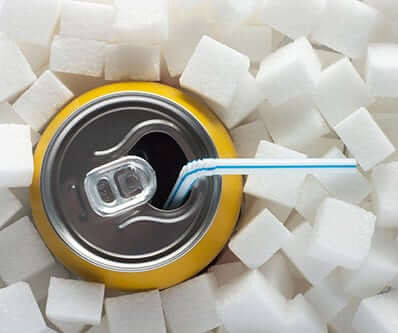People with diabetes weigh their options carefully when it comes to what they eat. Sugar and sweeteners are no exception to that rule.
Some people may prefer the taste of table sugar (sucrose) to other sweeteners. But, they also know the harmful effects that sugar can have. When people with diabetes eat too many sugary foods, blood glucose levels can skyrocket dangerously. Over time, elevated sugar levels can lead to permanent damage of the eyes, kidneys, nerves, heart, and other organs. For this reason, many people choose to substitute artificial sweeteners for some or all of the sugar in their diets.
What benefits do artificial sweeteners have? First and foremost, many have no calories and do not raise blood glucose levels. Second, many foods made with low-calorie sweeteners have fewer calories due to the reduced amount of sugar. Always be sure to read nutrition labels carefully; “reduced sugar” or “sugar free” doesn’t necessary mean “reduced calorie” or “low fat”.
Artificial sweeteners on the market today in the United States have been approved by the Food and Drug Administration, a decision backed up by the American Diabetes Association. Some of the most common artificial sweeteners are these:
- Saccharin is found in products such as Sweet N Low, Sweet Twin, and Necta Sweet. Saccharin may be used in both hot and cold food and drinks.
- Sucralose is sold as Splenda. It retains its sweetness during baking and cooking, making it appropriate for cold and hot food and drinks.
- Aspartame is the sweetener contained in NutraSweet and Equal, and can lose some sweetness if subjected to high temperatures.
- Acesulfame-K (potassium) is found in products like Sweet One, Swiss Sweet, and Sunett. It may be used in baking and cooking.
Stevia is an herb that has been used as a sweetener for many centuries in South America amongst various indigenous tribes. Many people prefer to use it because it is all-natural. Stevia can be up to 300 times sweeter than sugar, and has a long-lasting sweetening effect.
Another type of sweetener is in a category of its own: sugar alcohols. Despite the name, sugar alcohols contain no alcohol. Sugar alcohols have about half the calories of sugar. Some sugar alcohols are sorbitol, xylitol, isomalt, and manitol.
If you’d like more information about the use of sugar and other sweeteners, speak to your health care provider.













Good Layout and design. I like your blog. I just added your RSS feed to my Google News Reader. .
Jason Rakowski